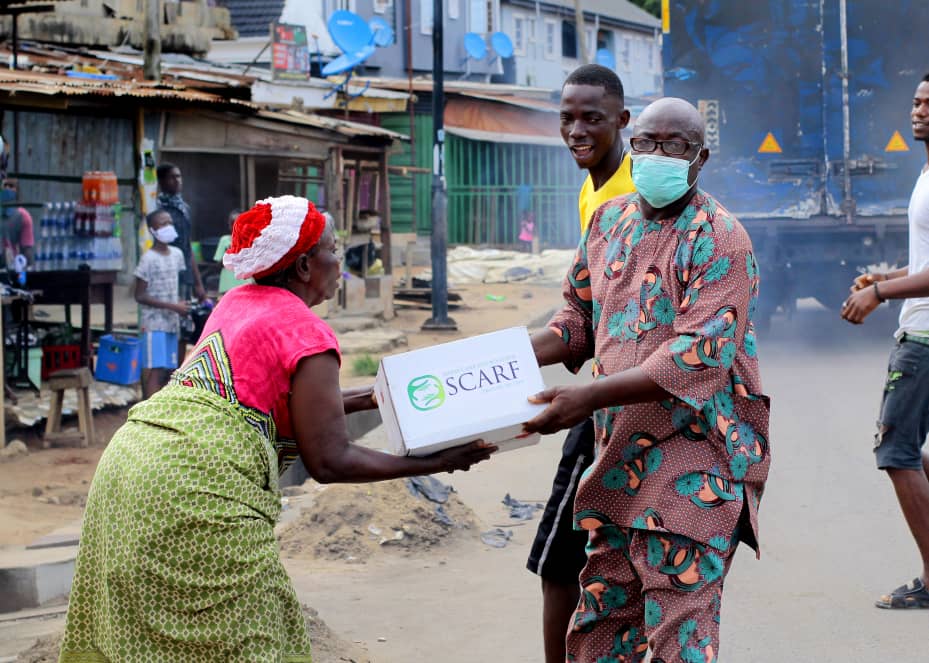By Adebayo Rasheed Mabayoje
When COVID-19 broke out in Wuhan, China
in December 2019, nobody imagined it
would become a pandemic, and not in the worst case scenario, affect global and local economies, standing at their worst in decades. Bad enough, it caused global economic and social disasters, pushing countries to design various measures against this phenomenon. For example, fresh monies are injected into national economies, just as support funds were provided for private businesses, and social securities upscaled. The situation is not different in Nigeria.
Part of measures put in place by the Federal Government against the spread of the virus is the pronouncement of regulations on social contacts and restriction of movements of citizens, – a common experience globally.
A social order that infringes economic activities of individuals would be unpopular, but remained the best option against a life-threatening episode like COVID-19. Thence, the effect of this new order on the Nigerian citizens, especially those categorised as “the poor and vulnerable”, attracted public discussions from various groups. People under this category are daily wage earners, hence the lockdown is considered as an obvious stoppage to their daily subsistence means.
In this regard, palliative measures were designed by the Federal Government, which, according to the Humanitarian Affairs and Disaster Management Minister, Sadiya Umar Farouq, covered 2.6m vulnerable persons at the initial round.
The Nigerian President, Muhammadu Buhari later directed for the expansion of the beneficiaries to 3.6 million, with more focus on the urban poor, who rely on the informal sector to earn their livelihood.
Private organisations, government establishments and individuals also reacted by donating funds to states and the Federal Government. In addition, some individuals and private bodies, like the Sheri Care Foundation, SCARF were on the streets to support needy Nigerians at this crucial moment. The Foundation was established ten years ago by Mrs. Sherifat Aregbesola, as a development-focused, not-for-profit organisation.
Over the years, Mrs Aregbesola, wife of the Interior Minister, Rauf Aregbesola, has presented an inspiring identity with respect to how she showed care and love to individuals during, and especially after the tenure of her husband as Osun Governor.
This informed the idea behind the establishment of the Foundation by her.
Sheri Care Foundation (SCARF), crafted after her first name (Sherifat) consistently engages in activities like care for the aged, the physically challenged, widows, children and other needy.
These gestures still continue two years after the former First Lady returned to her private life, outside of the transient “government house”.
Therefore, the social circumstance of the COVID-19 pandemic, especially as affecting the immediate welfare of some members of communities in Ilesa, Osun; Ijagbo, Kwara; and Alimosho, Lagos is just another opportunity for SCARF to touch lives of humans, once again. Combo packs of food items and other regulars, loaded in trucks, were distributed recently.
According to her, the gesture is driven by an ideology she practises, saying: “We do this for God’s favour. We will continue as much as God allows us.”
The truck loads of the combo items were distributed by handlers who were spotted in branded attires of the foundation, SCARF. Beneficiaries ranged from aged women, and other members of communities in Osun, Kwara and Lagos states who prayed for the donor.
The Sheri Care Foundation, SCARF, is entrenched in providing care to the less-privileged, aged and physical ability notwithstanding. SCARF promotes and strengthens the capacity of the less-privileged to self-help through endeavours that facilitate economic opportunity for them, especially the poor.
In the last ten years, it has made impacts in the promotion of health, sanitation and hygienic status of communities, especially in the State of Osun. One of the memorable instances is the significant impact made in 2013 through its efforts which enhanced a global policy decision – Female Genital Mutilation, FGM. MrsAregbesola, the President of SCARF, led a community-to-community campaign aimed at stopping the practice of female genital mutilation in the state.
The following year, 2014, witnessed another devotion by her, to a global charge towards hygiene practices. As an ambassador of Community-Led Total Sanitation (CLTS), an approach designed to improve sanitation and hygiene practices in a community, Mrs Aregbesola led campaigns within several weeks, during which she charged Osun women to embrace neatness and good hygiene at all times.
Babies in the cradle between 2010 and 2018 at the Our Lady of Fatima Catholic Hospital, Jaleyemi, Osogbo, theState of Osun would, by now, have grown to hear the stories of how the President of SCARF touched their lives in their cradle. During the period, it was a routine for MrsAregbesola to visit the abandoned and motherless babies unit of the hospital where she showed love to the abandoned babies that were taken to the hospital. This was in addition to hosting vulnerable children to parties during annual festivals, among others.
Talk of “an opportunity presenting itself”, the Coronavirus phenomenon is it, for a humanitarian devotee to show how much she cares.











